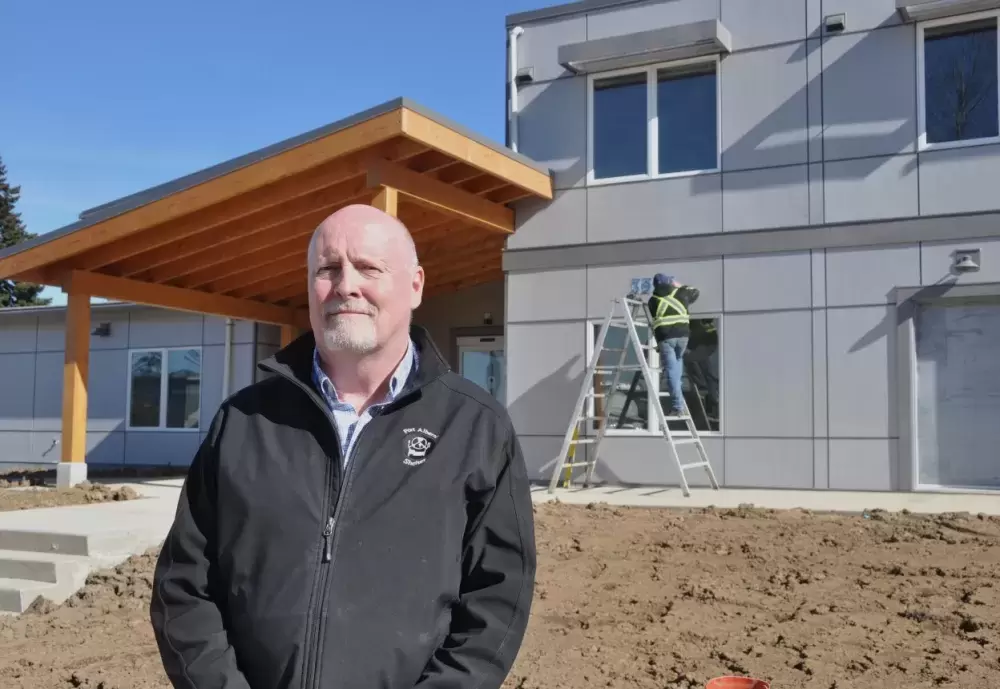Moving day has been delayed at Our Home on 8th, but tenants, which will include a large contingent of Nuu-chah-nulth members, are expected to begin occupying their suites by the official opening day on Friday, March 8.
The facility is located at 3939 - 8th Ave, and contains 30 self-contained apartments with a bathroom and kitchenette in each unit. An additional five units will provide 20 shelter spaces for short-term clients. Two of the apartment units are for people with disabilities and one unit is available to a low-income family with children.
Our Home was built through a partnership with BC Housing, Island Health, the City of Port Alberni and the Port Alberni Shelter Society, which operates the facility.
“The project will provide safe and supportive homes for people over age 19 who are experiencing homelessness, and who could benefit from supportive programming to address mental health and dependency issues,” BC Housing senior communications advisor Andrea Coutts told Ha-Shilth-Sa.
It was originally announced that tenants would begin moving in on March 4, but when Ha-shilth-sa visited the site on Monday morning, technicians were at work testing the elevators.
“They are moving stuff in, but we are still waiting for an occupancy permit,” Port Alberni Shelter Society executive director Wes Hewitt explained. “‘Occupancy permit’ means the elevators have to be certified.” As of Wednesday, the occupancy permit had still not been approved.
To obtain one of the apartments, potential clients must make an application to BC Housing, which, in turn, performs a VAT (Vulnerable Assessment Tool). Victoria then selects the candidates using input from a community placement table representing a range of social interests.
“Our criteria is simple,” Hewitt said. “They have to be someone that has been in the community for three years.”
Residents will be charged a monthly rental rate of $375, which is the current shelter allowance for people experiencing homelessness. The ratio of clients must be based on the latest statistics on local homelessness. That means the number of Indigenous clients will be proportionally higher than that of non-Indigenous people, because the rate of homelessness is so disproportionate, Hewitt explained. Age and sex are also considerations.
“Now, if you add substance abuse and mental health into that… that’s who we’re trying to help out,” he said.
Hewitt said supportive housing is not just low-income housing.
“Supportive housing is directed at people who need those supports,” he explained. “The idea is not to fill up with people who need cheap rent.”
The goal is to provide tenants with life skills counselling, to better prepare them for life in the community. Even learning simple things like cooking and cleaning can affect an individual’s ability to live independently.
“You can learn to cook here; you can learn to budget; you can learn life skills that will help you move ahead in the community,” Hewitt said. “Some of them will move on to regular market rentals – possibly, they will have to have rent supplements.”
The modular units were built by the Courtenay-based Muchalat Group, a family-owned business that employs First Nations tradespeople, according to Hewitt. The Muchalat Group has been contracted by the province to build a number of projects.







